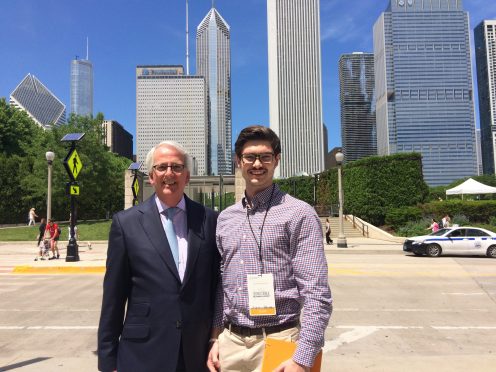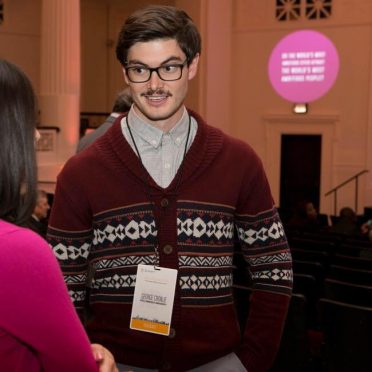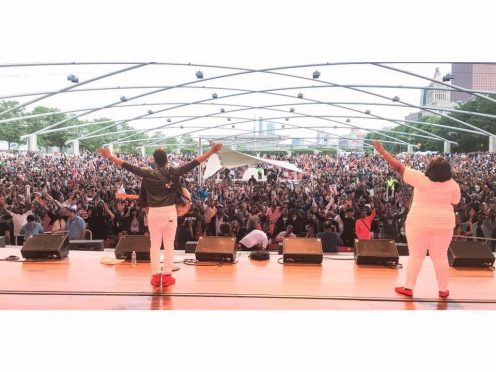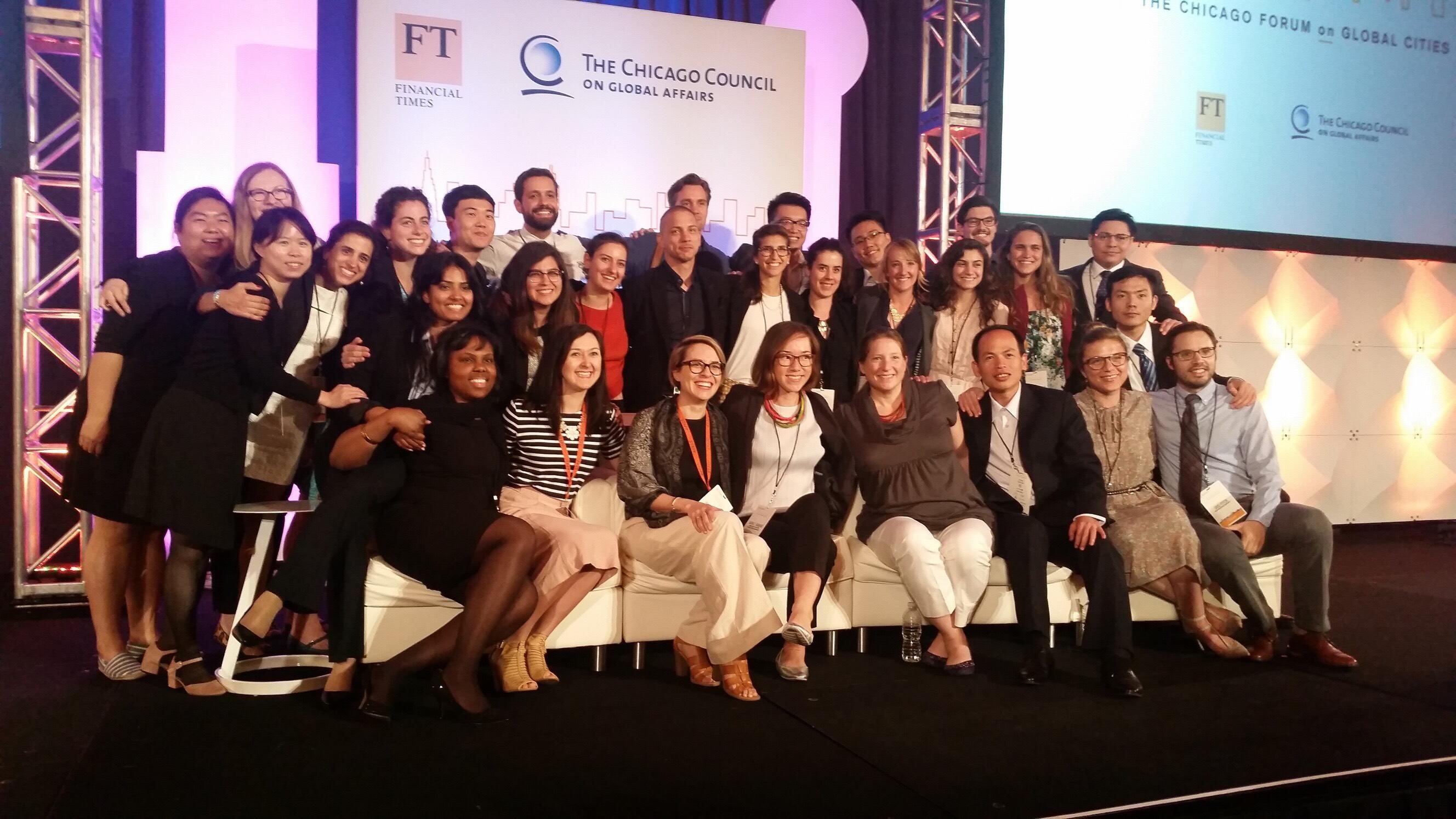It was such a privilege to have represented Stellenbosch University at the Chicago Forum for Global Cities held on 1 – 3 June 2016 in Chicago, USA.
In preparation for my trip I was fortunate to still have a valid United States visa. It is critical to start as soon as possible with your visa application seeing that Stellenbosch University only receives the invitation from the Chicago Council on Global Affairs through another, partner university. At the Forum I addressed this issue and thus hopefully they will send the invitation directly to Stellenbosch University next year which will provide more time for a visa application.
The Forum is excellently organized and as soon as you are accepted you will be in the safe and capable hands of specific Chicago Council on Global Affairs employees that take responsibility for the student delegation of the Forum. You will be enquired when your plane arrives to ensure that you are accounted for when proceedings gets on the way at the student delegation opening dinner. The student delegation gets together a day before the Forum officially starts. I booked my flight so that I arrived three hours before the opening dinner, but due to delays at O’Hare International and traffic, I arrived an hour late. I would suggest giving yourself a five hour buffer after landing so that you will have enough time to check-in at the hotel and get yourself ready for the evening.
Essentials to take from South Africa is:
- Enough Dollars for cab fare and some spending money.
You need to pay for your cab from the airport (this is around $60 and the Forum will reimburse you that same day) and you need some cash if you would like to explore the city the first night you arrive. When booking into the luxurious Park Hyatt hotel, you can safely store your spending money in your room’s safe. After the Forum you can draw money, but I decided to take enough dollars from South Africa and not pay withdrawal fees in the States.
- Business cards:
Seeing that the Forum attracts such a wide range of delegates, it is an excellent opportunity to network with interesting people. You can download the app Scannable that easily scans business cards and if it is linked with your LinkedIn account you can add people on the spot!
Offline maps:
I did not activate my phone for roaming and used the WiFi areas of the Forum and the hotel. I downloaded offline maps of Chicago before I left which I used to navigate around the city after the Forum.
Authentic South African gifts:
I gave a “braaitang”, biltong and droëwors to some people I connected with after the Forum and to some of the church members that hosted me.
How to mentally prepare yourself:
Postgraduate students are probably more accustomed to academic conferences where only one person delivers a presentation on their work, whereas the Forum almost exclusively uses panel discussions to discuss topics. To get an idea of what exactly the Forum entails, I would suggest to go to their website and to watch some of the sessions of this year’s Forum – all panel discussions can be freely accessed online at: https://www.chicagoforum.org/videos/2016. On their site you will also be able to find some fantastic articles that will be able to stimulate your thinking to help you get as much out of the Forum and out of informal discussions as possible. I would start three weeks before the Forum, look at the agenda and put out time to educate yourself on the session topics.

The Forum also sends you a list of the student delegation as soon as it is finalized. The list contains a bio of each student. I printed out this list for myself and studied it very well on my flight to Chicago. When I arrived I then knew everyone’s name, where they came from and what they studied. This helped me a lot in knowing what is their background and what is important for this person. It was a wonderful experience meeting the student delegations. We were 28 students from 21 countries and between us we studied a wide range of fields. We spent the whole Forum together, mingling, eating and sitting together.

At the student delegation’s opening dinner we received our pack of Forum essentials containing gifts and the agenda. The agenda was packed with stimulating sessions and activities and the logistics for the students was organized fantastically. That first evening I went to explore the city with a fellow student and we found a small karaoke bar. It was amazing to observe the locals socializing and to learn about my new friend’s life in Brazil. Our first full day as student delegations was fun. We had a workshop where we learnt about each other’s research and we visited the DuSable Museum of African American History. That evening the luxury of the Forum was truly revealed where we as students could walk out of a Hyatt hotel, climb on a (very American) muscled-up bus and be taken to a fabulous opening dinner in the captivating Field Museum. Walking past a giant T-Rey skeleton I went to watch fireworks as day boomed over Navy Pier, just before I got taken away to get some late night sushi and drinks at the NOMI rooftop terrace.
The following days a very sleep deprived me ferociously wrote down all the interesting remarks of the panelists as we moved from one interesting sessions to the next, while each venue was more beautiful than the previous one. The panel discussions were superbly moderated by Financial Times journalists and ranged from topics such as transportation hubs to cultural heritage, safety threats, inclusivity, disruptive technologies, climate change and many more.
I really enjoyed the Forum because it was so “real world”. There are many conferences that are about future and smart cities, but a lot of the content of such conferences will never be implemented. The Forum addresses current problems and practical solutions to these problems. It is exciting to think that the ideas that are discussed in the Forum may actually be implemented in the near future, because the delegates and speakers are leaders in their fields and they occupy places of influence.
After the Forum I gave myself three full days to see the city. I really have a heart for connecting with local churches and learning how they serve their communities. I thus connected to a church there through some of my friends that has travelled to Chicago and attended church there. One congregation member was kind enough to take me in so I stayed with him and helped out wherever they needed me.
What I took from my experience:
I realized that cities are really a big deal and that by 2050 two thirds of the world will be living in cities! This has changed the way in how I approach my Master’s thesis that addresses energy poverty in urban informal settlements.
When I think of the development of poor communities I like to think back on the words of the Governor of the Metropolitan Region of Santiago in Chile “We build social ghettos and then wonder why there is violence”. And when I think of the future I learnt that we need to be responsive to policies concerning disruptive technologies such as autonomous vehicles so that it can be in place before it is widely used.
Something that I love about the Americans is that they really “go for it”. I was so impressed reading up about the history of Chicago and how they turned a swamp land into the city that it is today – reversing a river and all! This attitude of putting one’s head down and doing something that looks very daunting is something that was very inspiring for me.

Going to the DuSable Museum of African American History was truly a highlight for me. Being South African, I am constantly challenged with regard to the issue of race and how I should align my mind and actions accordingly. Our tour at the museum was amazing and I received a lot of new found perspective. Exploring the city had been an amazing experience and I learnt a lot about race through the city’s rich diversity. Seeing the city’s racial segregation in neighbourhoods was surprising, but worshipping in Millenium Park to Travis Greene with the predominantly African-American churches at the Chicago Gospel Music Festival was truly profound!

